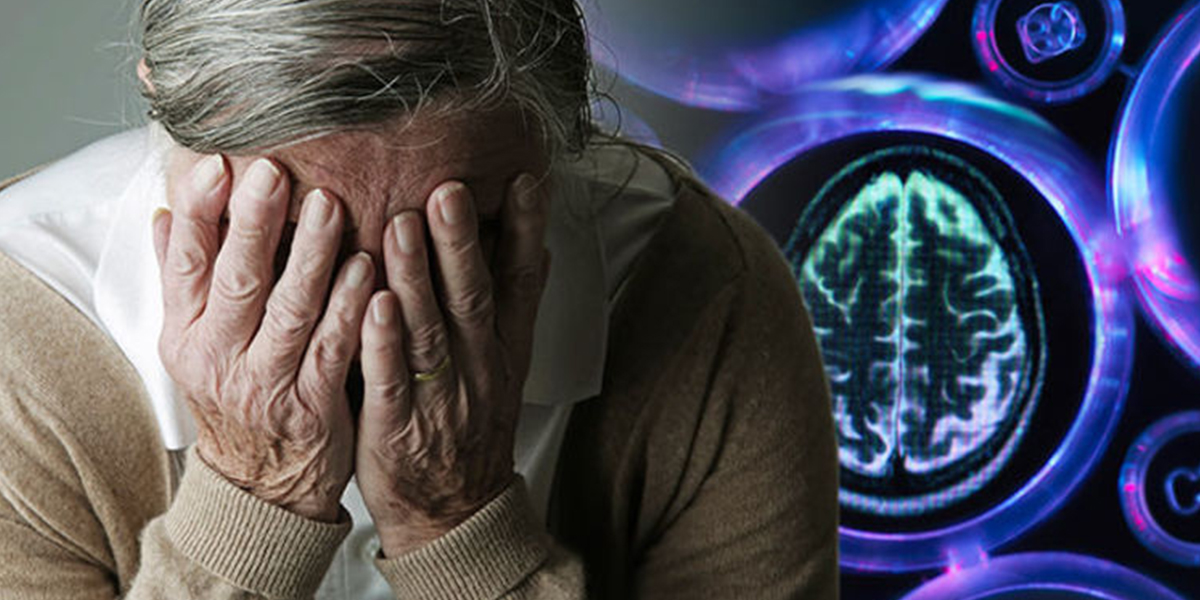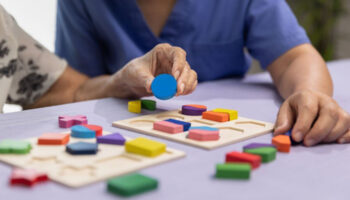Dementia is a complex and challenging condition that affects millions of elderly individuals worldwide. Coimbatore, known for its vibrant culture and serene environment, is home to a growing population of seniors, many of whom face the daily challenges of dementia. Athulya Senior Care, with its dedication to dementia care, provides a nurturing environment where seniors receive specialised attention and support. In this blog, we will delve into the intricate world of hallucinations and delusions in dementia, exploring their causes, management, and the role of holistic care in dementia-friendly facilities.
Understanding Dementia
Dementia is an umbrella term that encompasses a range of cognitive disorders characterised by a decline in cognitive function beyond what is expected with normal aging. Alzheimer’s disease, a progressive neurodegenerative disease, is the most common form of dementia. Forgetfulness and dementia extend beyond occasional memory lapses to encompass cognitive impairments that affect daily functioning.
Hallucinations and Delusions in Dementia
As dementia progresses, individuals may experience various cognitive and behavioural symptoms. Hallucinations and delusions are two such symptoms that can be particularly distressing for both the affected individual and their caregivers.
● Hallucinations: Hallucinations involve perceiving things that are not present. In dementia, visual hallucinations are most common but can also include hearing, smelling, or feeling things that are not there. For example, a person with dementia may see people, animals, or objects that do not exist.
● Delusions: Delusions are false beliefs resistant to reason or contrary evidence. In dementia, delusions often take the form of paranoid thoughts, where the person believes they are being harmed or deceived by others. They may also have delusions about theft, infidelity, or conspiracy theories.
Causes of Hallucinations and Delusions in Dementia
Understanding the causes of hallucinations and delusions in dementia is crucial for effective management. Several factors contribute to the development of these symptoms:
1. Neurological Changes: Dementia, including Alzheimer’s disease, causes significant changes in the brain. These changes can lead to misinterpretations of sensory input, resulting in hallucinations.
2. Medication Side Effects: Some medications commonly prescribed to manage dementia-related symptoms can have side effects, including hallucinations and delusions.
3. Psychological Factors: Emotional distress, anxiety, and depression can exacerbate hallucinations and delusions in dementia patients.
4. Sensory Impairments: Sensory deficits, such as impaired vision or hearing, can contribute to the misperception of stimuli, leading to hallucinations.
5. Environmental Factors: Unfamiliar or chaotic environments can increase confusion and the likelihood of experiencing hallucinations or delusions.
Management of Hallucinations and Delusions in Dementia
Managing hallucinations and delusions in dementia requires a multifaceted approach considering the individual’s unique needs and circumstances. Some strategies that can help include:
Medication: Sometimes, healthcare providers may prescribe antipsychotic drugs to manage severe hallucinations and delusions. However, these medications should be cautiously used due to potential side effects.
Environmental Modifications: Creating a calm and familiar environment can reduce anxiety and confusion, thus minimizing the occurrence of hallucinations and delusions.
Behavioural Interventions: Techniques like validation therapy, redirection, and distraction can effectively address challenging behaviours associated with hallucinations and delusions.
Emotional Support: Providing emotional support and reassurance to individuals with dementia is essential. Caregivers should be patient and empathetic when addressing their concerns.
Holistic Care: Holistic care that considers the individual’s diet and dementia, physical, emotional, and spiritual wellness can significantly manage hallucinations and delusions. This approach is a cornerstone of dementia care at Athulya Senior Care in Coimbatore.
Dementia care is not just about managing symptoms; it’s about enhancing the individual’s overall well-being. Athulya Senior Care in Coimbatore embodies this philosophy by providing holistic dementia care that addresses the various dimensions of a person’s life:
● Physical Well-being: We ensure that residents receive proper nutrition and healthcare to support their physical health. A balanced diet and regular exercise are essential components of their approach.
● Emotional Support: The emotional well-being of individuals with dementia is a top priority at Athulya. Caregivers offer companionship, empathy, and a safe space for residents to express their feelings.
● Spiritual Wellness: We recognise the importance of spiritual wellness in dementia care. They provide opportunities for residents to engage in spiritual and meaningful activities that nurture their inner selves.
● Dementia-Friendly Facilities: The physical environment at Athulya is designed with dementia-friendly principles in mind. The layout is intuitive, and safety measures are in place to reduce confusion and enhance residents’ comfort.
● Memory Care: We offer specialised memory care programs that focus on maintaining cognitive function and providing mental stimulation to residents.
The Importance of Brain Health for Seniors
Maintaining brain health is crucial for preventing or delaying the progression of dementia-related symptoms. Here are some strategies to promote brain health for seniors:
1. Healthy Diet: A diet rich in antioxidants, omega-3 fatty acids, and brain-boosting nutrients can support cognitive function. Leafy greens, fatty fish, berries, and nuts benefit the brain.
2. Physical Activity: Regular exercise improves blood flow to the brain and promotes the growth of new brain cells. Even light to moderate exercise can have a significant impact.
3. Mental Stimulation: Engaging in mentally stimulating activities such as puzzles, reading, and learning new skills can help keep the brain active and agile.
4. Social Engagement: Staying socially active and maintaining strong social connections can help reduce cognitive decline. Interaction with others stimulates cognitive function.
5. Adequate Sleep: Quality sleep is essential for cognitive health. It allows the brain to consolidate memories and repair itself.
Dementia and memory care are complex challenges that require a thoughtful and holistic approach to care. Athulya Assisted Living exemplifies this approach by providing dementia care focusing on physical, emotional, and spiritual well-being. With a commitment to creating dementia-friendly facilities and offering specialised memory care programs, Athulya Senior Care is dedicated to unravelling the mysteries of dementia and providing a nurturing environment where seniors can live their lives to the fullest, even in the face of cognitive challenges. As Coimbatore continues to grow as a hub for senior care, Athulya stands as a beacon of hope for those seeking comprehensive and compassionate dementia care.
Information: This blog is for informational purposes only and should not be considered as a substitute for any treatment or diagnosis. Seek professional help in case of any emergency. Athulya is not responsible for any consequences.





